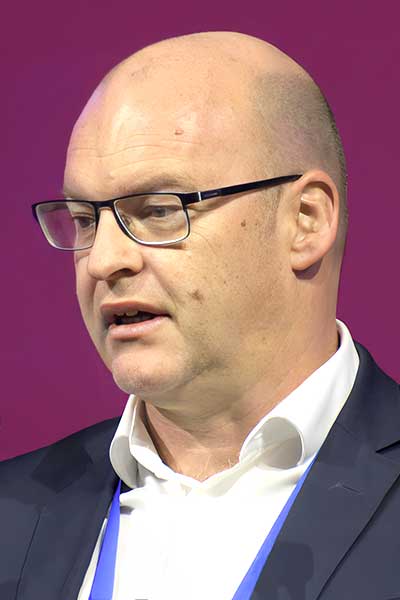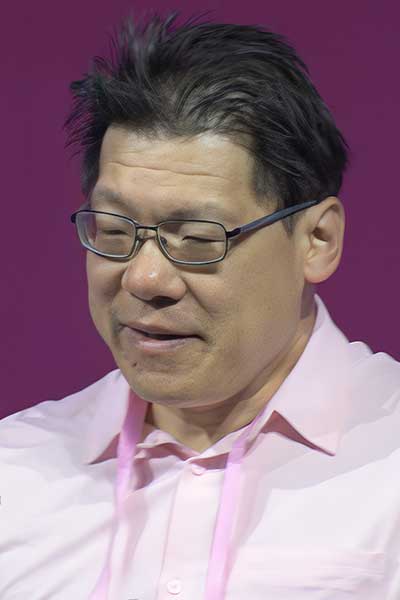The introduction of chimeric antigen receptor (CAR)-T cells has revolutionized the treatment of blood cancers and holds promise for the treatment of autoimmune diseases. Given that this field of investigation only began two years ago, there is limited data and much to learn.

Three experts in the field discussed CAR-T cell engineering and promising preliminary clinical findings during CARs as “Drivers” of Precision Cellular Immunotherapies for Autoimmune Diseases, which is available on demand for registered ACR Convergence 2023 participants through Oct. 31, 2024, on the meeting website.
Michel Sadelain, MD, PhD, Director of the Center for Cell Engineering at Memorial Sloan Kettering Cancer Center, discussed the fundamentals of CAR-T cell engineering and highlighted novel approaches.
Advances in CAR-T cell engineering aim to address the shortcomings seen with current therapies, including insufficient functional persistence, antigen escape, microenvironmental suppression, and production costs. Based on these shortcomings, novel CAR-T cell designs are being developed to control antigen sensitivity, calibrate signaling strength, expand lifespan, and create new T cell sources.
“We can begin to get smarter in programming the sensitivity of CAR-T cells,” said Dr. Sadelain. “I’ve highlighted the importance of affinity, signaling strength, and the possibilities offered by logic-gating. In terms of the functional lifespan of CAR-T cells, signaling, transcription, epigenetic programming, and ontogeny reprogramming can all contribute in the future to make better CAR-T cells.”

Georg Schett, MD, Vice President Research, Professor, and Head of Internal Medicine, Friedrich-Alexander-Universität Erlangen-Nürnberg, Germany, discussed the immunological consequences of CAR-T cell therapy in refractory systemic lupus erythematosus (SLE).
CASTLE, a compassionate-use study evaluating the short-term efficacy of CD19 CAR-T cell therapy in autoimmune diseases, has enrolled 15 patients. All eight patients with lupus are in remission and have a Systemic Lupus Erythematosus Disease Activity Index of zero. More importantly, all eight patients were able to discontinue their immunosuppression therapy after a single infusion of CAR-T cells.
“This remarkable efficacy is probably based on the fact that CAR-T cells are leading to a very deep abrogation of the B cells, most likely also in the tissues,” Dr. Schett said. “This is not necessarily long, but it’s obviously much more profound than what we think, that only plasmablasts survive that approach. And then the B cell system is regenerated by the early bone marrow precursors.”
Vaccination-related antibodies seem to be stable after CAR-T cell therapy, along with immunoglobulin levels.

Chyi-Song Hsieh, MD, PhD, Professor of Medicine, Washington University School of Medicine, discussed the antigen-specific depletion of CD4-positive T cells in an experimental model of autoimmune encephalomyelitis (EAE).
In an EAE model, Dr. Hsieh and his team injected two different CAR-T cell therapies in mice with a clinical score of zero and mice that had evidence of disease activity, such as tail paralysis. The first CAR-T cell therapy was able to prevent disease in both groups of mice. However, only the second CAR-T cell therapy, which was improved through the addition of a disulfide trap, was able to prevent and improve disease.
“The big lesson of this study was that it may be easier to prevent autoimmune disease than to treat,” said Dr. Hsieh.
Register Today for ACR Convergence 2025

If you haven’t registered for ACR Convergence 2025, register today to participate in this year’s premier rheumatology experience, October 24–29 in Chicago. All registered participants receive on-demand access to scientific sessions after the meeting through October 31, 2026.
